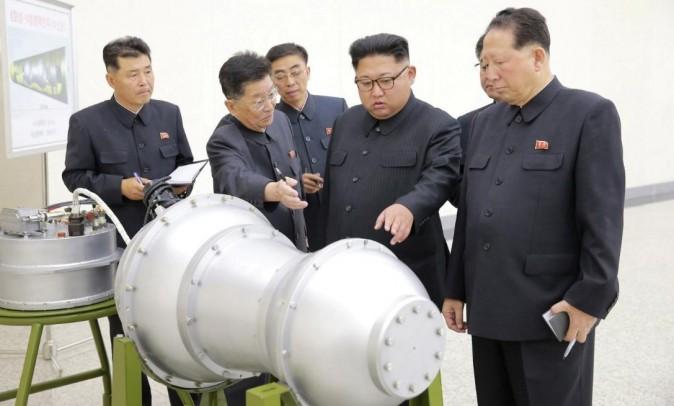President Donald Trump said that North Korea’s recent moves “continue to be very hostile and dangerous to the United States” and the rest of the world.
Trump, in several tweets on Sunday morning, wrote that Pyongyang “is a rogue nation which has become a great threat and embarrassment to China, which is trying to help but with little success.”
North Korea on Sunday claimed that it tested an advanced hydrogen bomb that it could mount on an intercontinental ballistic missile, known more commonly as an ICBM. The test reportedly set off a man-made earthquake in the country’s northeastern region, which was reportedly felt in China. The U.S. Geological Survey confirmed seismic activity, calling it a 6.3-magnitude “possible explosion” and it’s “located near the site where North Korea has detonated nuclear explosions in the past.”

“South Korea is finding, as I have told them, that their talk of appeasement with North Korea will not work, they only understand one thing!” the president later tweeted.
The White House told Reuters that Trump’s national-security team was “monitoring this closely,” and that Trump will meet with his advisers later on Sunday.
On state TV, Pyongyang said it tested the bomb and was a “complete success“ involving a two-stage thermonuclear weapon.






